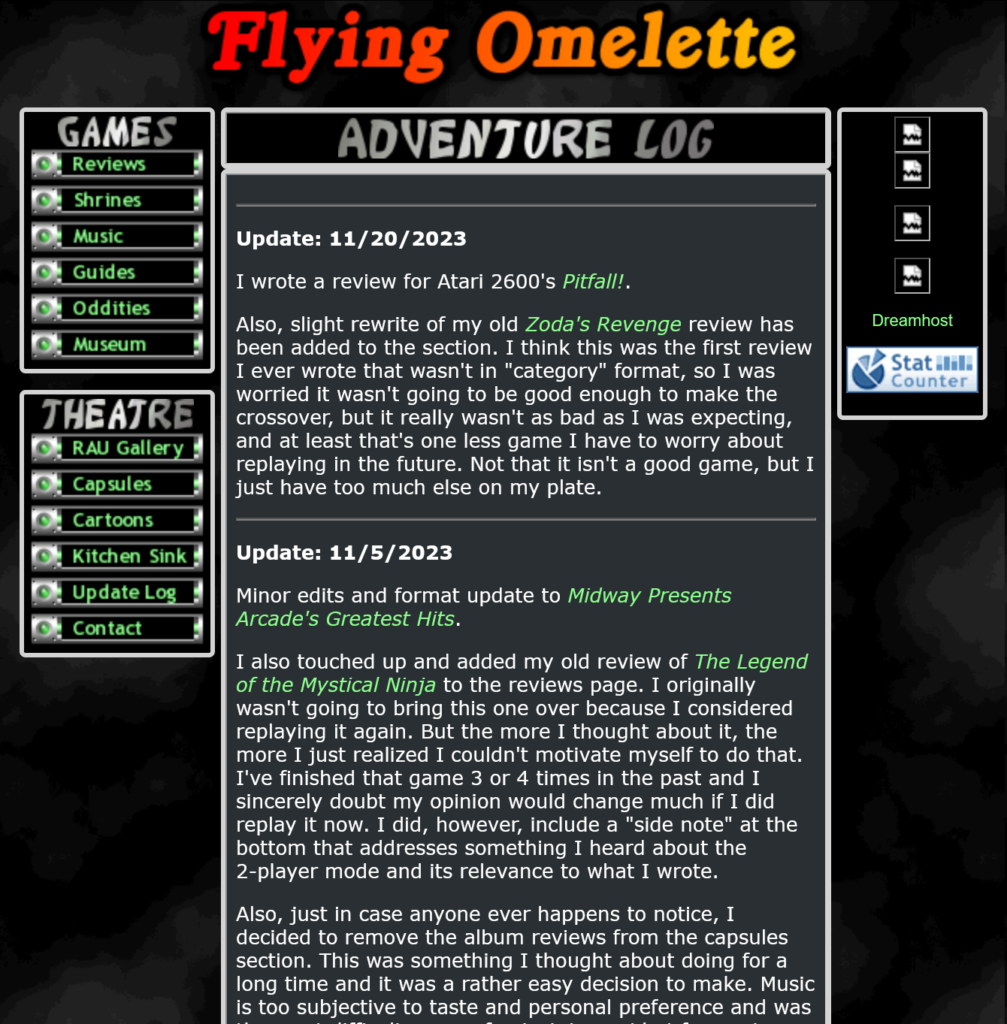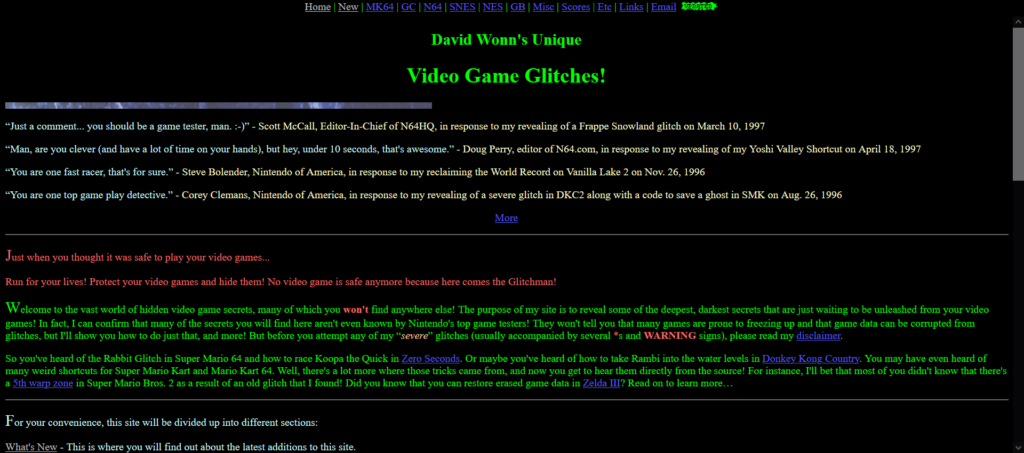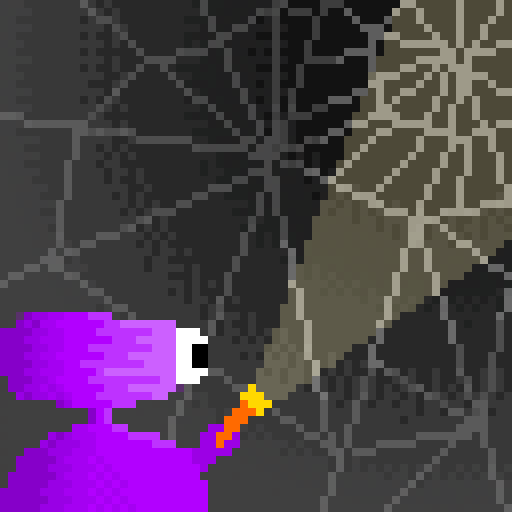
The World Wide Web is now over thirty years old. In that time, more content has vanished from it than remains now, but some of it can still be dredged up from the shadowy archives of the Wayback Machine. This is the latest chapter in our never-ending search to find the cool gaming stuff that time forgot….
It’s a little risky to post this, because it’s a joke video game page on Tripod from 2001 that still somehow persists on the internet in 2024. I have to imagine that Phred is in his mid-to-late 40s by now. There’s several long pages here from that site, and there’s always the chance that a racist or neo-nazi joke, from an age when kids thought lightly of such things, could be lurking somewhere in there. Please understand it as a product of its time. It’s an amateurish site, but it has a lot of energy behind it.
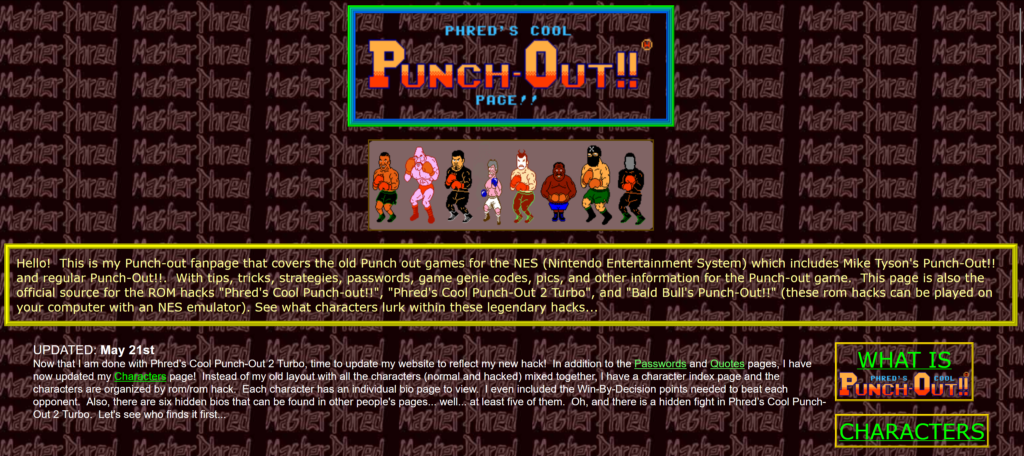
I think it’s still worth looking at as a reminder of that age of the internet, which had many bad things about it, but also a lot of good things. I don’t know which this is. It contains a number of pretty dumb graphics hacks for Mike Tyson’s Punch-Out and/or its successor released after Nintendo’s licensing deal with Tyson ran out. Those hacks can be found here, although the background (the words “Master Phred” in fancy letters) makes the descriptions and download links really hard to read. (Try highlighting the text.) If you follow a few links, you can find actual NES Punch-Out rom downloads, which it’s even more amazing to find on a website in 2024.
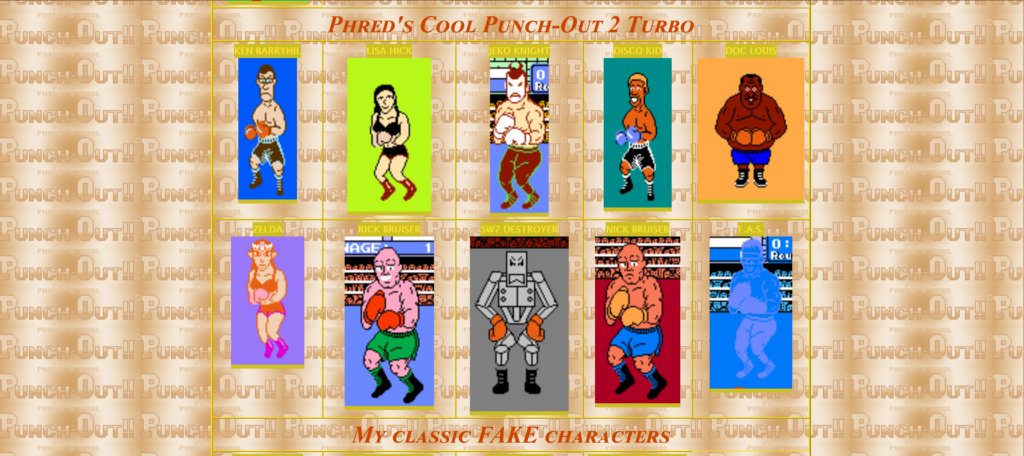
The characters page includes, among other hacked characters like Rick and Nick Bruiser from the SNES Punch-Out, a character named after the Wii Punch-Out opponent Disco Kid, which indicates this page has to have been updated since 2009. There’s a links page where every outgoing link, other than GameFAQs, is broken, and a secrets page where most of the secrets are fake.
Well there it is, Phred’s Cool Punch-Out. You’ve survived 23 years. May you live a hundred more.
Phred’s Cool Punch-Out!! (tripod.com)



